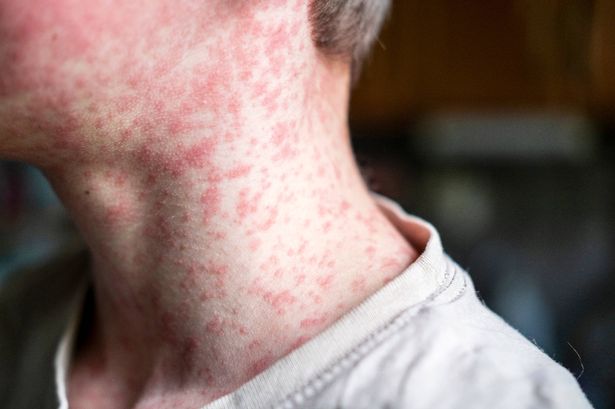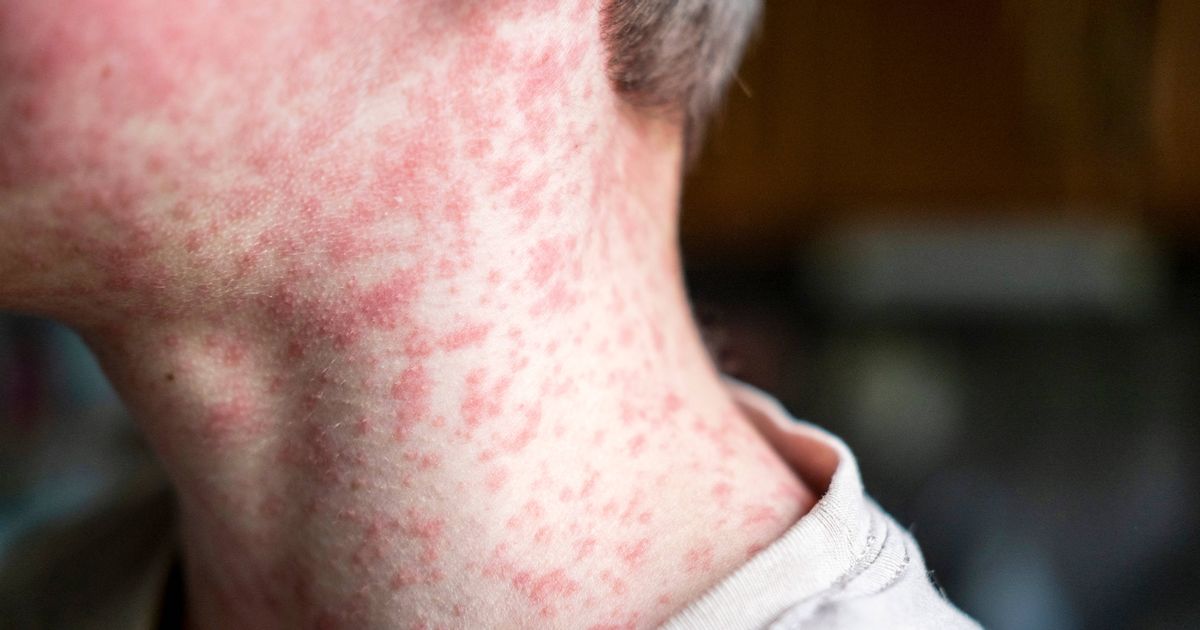Experts fear fresh surge of cases after school holidays as two Merseyside boroughs experiencing increase in infections Measles is on the rise in parts of Merseyside(Image: Natalya Maisheva via Getty Images)
Measles is on the rise in parts of Merseyside(Image: Natalya Maisheva via Getty Images)
Measles infections are on the rise in parts of Merseyside as medics raise concerns about a fresh surge of cases after the school holidays. This region has already faced a difficult period of measles infections at the start of the summer.
There have been 674 lab-confirmed cases of measles in England since January 1, the majority in children under the age of 10. Tragically, it was revealed last month that a child, who was ill with measles and other health problems, had died at Alder Hey Children’s Hospital in Liverpool.
Alder Hey said at the time that it was “concerned about the increasing number of children and young people who are contracting measles”.
The latest measles update from the UK Health Security Agency (UKHSA) shows there have been 145 new cases of measles that have been confirmed by lab-tests since early July.
The UKHSA suppresses data in areas with fewer than 10 cases, so it didn’t include any Merseyside infections in its previous updates.
However, amid the recent rise in infections, the UKHSA has confirmed 10 cases in Liverpool and 19 in Knowsley.
The UK Health Security Agency (UKHSA) is now urging parents to prioritise vaccine catch-up appointments during the school summer holidays.
Knowsley and Liverpool have the lowest vaccination rates in Merseyside and are among the lowest in England.
In Liverpool, just 73.4% of children had received both doses of the MMR (measles, mumps and rubella) jab by their fifth birthday. In Knowsley, it was 76.7%.
That is well below the target of getting 95% of children vaccinated, which the World Health Organisation (WHO) says is essential to achieving “herd immunity,” which stops illnesses from transmitting across the population.
Sefton (83.2%), St Helens (86.8%), and Wirral (88.6%) all have higher vaccination rates than Liverpool and Knowsley, but are still well below the WHO target.
You can see the cases near you using our interactive map.
Dr Vanessa Saliba, consultant epidemiologist with the UKHSA, said: “The summer months offer parents an important opportunity to ensure their children’s vaccinations are up to date, giving them the best possible protection when the new school term begins. It is never too late to catch up. Do not put it off and regret it later.
“Measles spreads very easily and can be a nasty disease, leading to complications like ear and chest infections and inflammation of the brain with some children tragically ending up in hospital and suffering life-long consequences.
“Two doses of the MMR vaccine is the best way to protect yourself and your family from measles. Babies under the age of 1 and some people who have weakened immune systems cannot have the vaccine and are at risk of more serious complications if they get measles. They rely on the rest of us getting the vaccine to protect them.”
Dr Amanda Doyle, National Director for Primary Care and Community Services at NHS England, added: “Vaccination is the best protection against measles, which is highly contagious and can cause serious health problems. The MMR vaccine is provided free by the NHS and I would urge all parents to check their child’s vaccination records before the new school year or summer travel, particularly as Europe is reporting the highest number of measles cases in 25 years.
“While the NHS delivered tens of thousands of additional MMR vaccinations last year, too many eligible children remain unvaccinated, and we are working with local authorities and the UK Health Security Agency to reach more youngsters, with enhanced vaccination offers in areas with higher cases, including vaccination buses and community catch-up sessions.”
The first MMR vaccine is offered to infants when they turn one year old and the second dose to pre-school children when they are around three years and four months old.
Around 99% of those who have two doses will be protected against measles and rubella. Although mumps protection is slightly lower, cases in vaccinated people are much less severe.
Anyone, whatever age, who has not had two doses can contact their GP surgery to book an appointment. It is never too late to catch up.
For more information on measles, mumps and rubella see the UKHSA resource: https://www.gov.uk/government/publications/mmr-for-all-general-leaflet.
